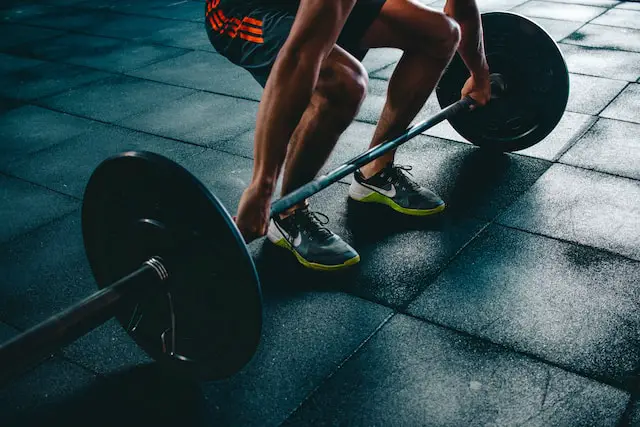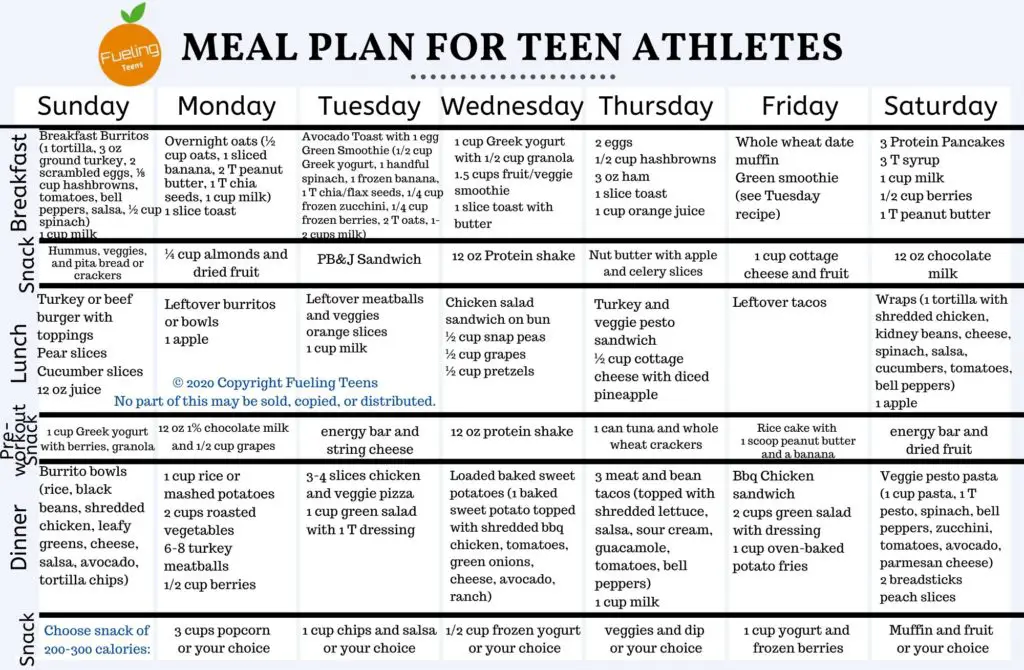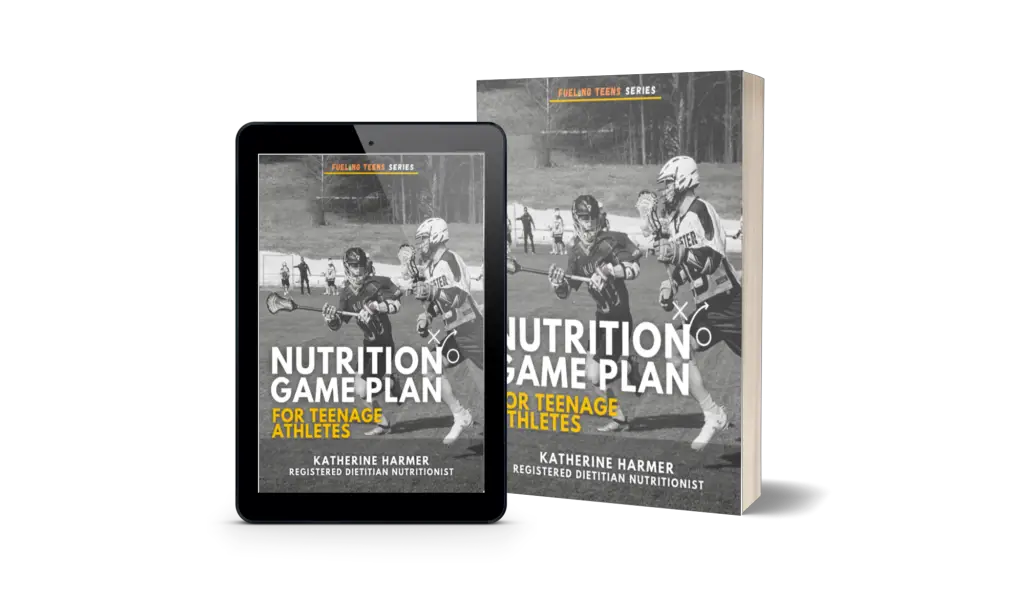Lifting weights and having efficient workouts and rest days is essential for building muscle and getting stronger, but have you ever thought about how much of an impact your nutrition habits could also have? Eating properly, paired with exercise is a great combo for building muscle, improving recovery time, and enhancing athletic performance!
Teen weightlifters should be getting the majority of their calories (at least 50%) from carbohydrates, your body’s preferred energy source. Protein is an important nutrient for weightlifters, but should not be consumed in excess, and instead should be eaten in consistent amounts regularly throughout the day. Healthy fats, as well as vitamins and minerals are also important nutrients that should be included!
Some of the best foods and meals a teenage weightlifter should eat include pasta with meatballs and veggies, tortilla wraps, grilled chicken salad, rice bowls, hummus pita, burritos, homemade protein smoothie shakes, fish, sweet potatoes, greek yogurt, eggs, and leafy greens.
Read on for more information about what are healthy foods for weightlifters, calorie and nutrient needs, the best diet for a teenage weightlifter, foods that will help with building muscle, and more!

Healthy Foods for a Teenage Weightlifter
You might expect there to be a list of “good” and “bad” foods for teenage weightlifters, but in reality, there are no foods that are off limits. All foods can fit as part of a healthy diet- even for serious athletes!
While there are no foods you need to completely avoid, there are definitely foods that are more nutrient-dense than others and should be eaten more frequently. If you focus on adding more of those nutrient-dense foods to your diet, things just tend to fall into place and you will be able to properly fuel your body without restricting or cutting out foods.
Think about including a variety of foods from each of the food groups with a focus on fruits, vegetables, whole grains, low-fat dairy, lean protein, and healthy fats. The other thing you can focus on is pairing carbohydrates, protein, and fat together for balanced meals and snacks.
Important Nutrients for Teenage Weightlifters
The macronutrients include carbohydrates, protein, and fat. They are nutrients that we eat in large quantities daily and that provide our body with calories. Let’s go through each of them to understand why they are important for weightlifters.
Carbohydrates are your body’s preferred energy source and what do you need a lot of while lifting weights? You guessed it… energy! Carbs are found in a wide variety of foods like rice, potatoes, pasta, tortillas, crackers, pretzels, corn, fruit, juice, candy, milk, yogurt, etc.
Protein is not only important for building and repairing muscle, but it also is important for a healthy immune system, healthy hair, skin, and nails, transporting other nutrients throughout the body and a whole lot more! Protein can be found in poultry, fish, meat, eggs, cheese, nuts, milk, greek yogurt, soy products, etc.
Fat is also an essential nutrient for teenage weightlifters. Did you know that consuming fat helps with the absorption of vitamins? Did you know that healthy fats can decrease inflammation and support good cholesterol levels and heart health? Healthy fats include things like oils, avocado, fatty fish, nuts, nut butters, seeds, etc.
How Many Calories Does a Teen Weightlifter Need?
Calorie needs can be a bit confusing because everyone’s body is a little bit different and lots of things can impact your calorie needs. While a lot of your calorie needs are just simply used to keep you alive and keep all your organs functioning properly, the more active you are, the more calories you need on top of that.
Here is the other factor that weightlifters need to consider- if you are trying to build muscle you actually need excess calories (AKA more calories than you are burning). It usually doesn’t have to be an excessive amount of calories more than you are burning, 200-500 extra calories is usually a good place to start.
I wrote a post to figure out how many calories you need, you can check it out here: How Many Calories Should a Teenage Athlete Eat? Ask A Dietitian
To get a general idea of how many calories you might need, you can also use the My Plate website and enter in your basic information, including how active you are. Keep in mind this is only an estimate and these kinds of calculators can still be inaccurate for some athletes.
Once you have a general idea of how many calories you need, it is best to apply the principles of mindful eating to really make sure all of your calorie needs are being met. That includes listening to your body and responding to hunger and fullness cues appropriately. If doing that does not help you feel energized throughout the day or doesn’t help you as you try and build muscle, that is a really good time to reach out to a registered dietitian for a little bit of extra guidance.
How Much Protein Does a Weightlifter Need?
One of the most common mistakes I see among athletes is overdoing it on protein with the intention of trying to build muscle. Believe it or not, protein isn’t the only nutrient your body needs to build muscle! Plus… your body can only handle so much protein at a time, so overloading your body with protein is not doing you much good.
Here are some tips for getting in the appropriate amount of protein for your body:
- Calculate your protein needs. Most weightlifters will need anywhere from 1-2 grams of protein per kg body weight. I usually start with 1.2-1.5 grams protein per kilogram (kg) of body weight for my athletes. That means a 170 pound weightlifter (77.3 kg) should aim for between 93-116 grams.
- Pay attention to how your body feels with the amount of protein you are eating. If you calculate your protein needs but it feels like too much or too little, your body might need something different! Seek out some advice from a sports dietitian as you work out what would be best for you.
- Include protein each time you eat. WHEN you eat protein is just as important as how much. Most weightlifters should have 20-30 grams of protein at meals and 10-20 grams at snacks. This will help to spread out your protein intake and keep those important nutrients available for your muscles throughout the day.
- Any time you eat protein, pair it with carbohydrates! Remember, you need more than just protein to help build muscle.
- The closer you get to exercise, the more you want to focus on giving your body energy, AKA carbohydrates. It isn’t necessary to eat a lot of protein right before you work out, especially if you have been eating it consistently throughout the rest of your day.
See also:
- The Best Protein Snacks for Teenagers
- Can a 14-Year Old Take Protein Powder?
- Is It Okay for a Teenager to Drink Protein Shakes
- Dietitian Recommended Protein and Energy Bars for Teens
Protein Supplements
Protein supplements, like powders and shakes, are pretty popular among teenage athletes. You can absolutely meet all of your protein needs without the use of protein supplements, but they can be a convenient option at times.
The most important thing to remember with protein supplements is that anyone can put anything out on the market. In fact many supplements have been found to contain things not on the label, and even illegal substances! If you do choose to use any kind of protein powder or other supplement, make sure it is a high quality one with a good reputation and that it has been tested for safety by a third party (I like looking for the USP and NSF-certified for sport labels).
For more information, see my post about protein supplements: Is Whey Protein Safe for Teenage Athletes? Here’s What Dietitians Recommend
See also: Best Supplements for Teenage Athletes
What is the Best Diet for a Teenage Weightlifter?
I don’t like to think of teen athletes’ eating patterns as “diets” because dieting is usually associated with restricting calories or certain foods. All foods can fit in a healthy eating pattern that is focused on fueling you as an athlete.
Following a strict diet is actually likely to do you more harm than good. Dieting is associated with developing disordered eating, underfueling, and malnutrition- all of which can be extremely harmful to a teen weightlifter.
Instead of thinking you have to follow a rigid diet with strict rules about what you can and can’t eat, focus on adding in more fruits, veggies, and whole grains, and focus on getting enough low-fat dairy, lean protein, and healthy fats! Try to include variety in what you are eating to help you get a mixture of nutrients!
FREE Sample Meal Plan for Teenage Athletes
My meal plans are written for males and females at 3,000 calories per day. This may need to be adjusted based on personal recommendations for more or less calories. Again, check here for your specific calorie needs: How Many Calories Should a Teenage Athlete Eat?
This meal plan contains 3 meals at about 800 calories each and 3 snacks between 200-300 calories. Use this meal plan for ideas then experiment to find what works best for your personal style, tolerance, and exercise goals.
I hope you find this helpful! It can be a great starting place for high school athletes. I like to include a variety of favorite foods with healthier spins in an appropriate balance. You don’t need to “diet” during your sports season, just eat smarter and have a nutrition plan.

For personal use only. No part of this may be reproduced, sold, copied, or distributed.
This is slightly similar to some of my other meal plans. It can easily be adapted based on the sport and type of athlete and individual recommendations.
Want specific help for your weight lifting diet straight from a nutrition professional- a Registered Dietitian Nutritionist (that’s me!)?
Check out my newest ebook: Nutrition Game Plan for Teenage Athletes for a 28-day meal plan, weight tips, supplement tips, snack list, and much much more.
What Foods Help You Build Muscle?
There aren’t any magic foods that are “muscle building foods,” but it is more about the timing of food intake and the amounts of different nutrients you are consuming. If building muscle is one of your goals, here are some of my top tips for how to maximize the benefit from your eating pattern!
- Eat regularly throughout the day, and include a good source of protein every 3-5 hours.
- Get a combination of carbohydrates and protein within an hour after your workout.
- Eat a high carb meal or snack before your workout. You may have to play around with the timing of eating to figure out what works best for you.
- Replenish your carbohydrate stores during your workout if you are going for longer than an hour and a half, if you are feeling drained, it is a particularly intensive workout, or if you were unable to fuel well before exercise.
- Don’t overload your body with protein. It can be hard on your organs but also cause you to miss out on other important nutrients that your body needs to build muscle. Be aware of products that market themselves as “muscle building foods” because they often have more protein than you actually need.
- Use protein supplements to supplement an already healthy diet, if you choose to use supplements. And remember to get a high quality protein supplement!
Summary
There is lots of misinformation out there about what teenage weightlifters need to be eating. Some trainers and coaches might proclaim that the keto diet is the best way to gain muscle, and the guys at the gym with their protein shakes might try to convince you to eat an absurd amount of protein to really see “gains.”
Rest assured that there is no crazy diet you need to follow to be a successful weightlifter. And you definitely don’t have to force feed yourself protein constantly like some people try to do.
Instead, focus on eating a variety of healthy foods, balancing your carbohydrates, protein, and fat, including more nutrient-dense foods like fruits and veggies, staying well-hydrated, fueling properly before, during, and after exercise, managing your stress, getting enough sleep, etc. When you focus on what you can add, rather than what you need to take out of your diet, things tend to naturally fall into place!
Fueling Teens is a participant in the Amazon Services LLC Associates Program, an affiliate advertising program designed to provide a means for sites to earn advertising fees by advertising and linking to Amazon.com. We also participate in other affiliate programs which compensate us for referring traffic.

